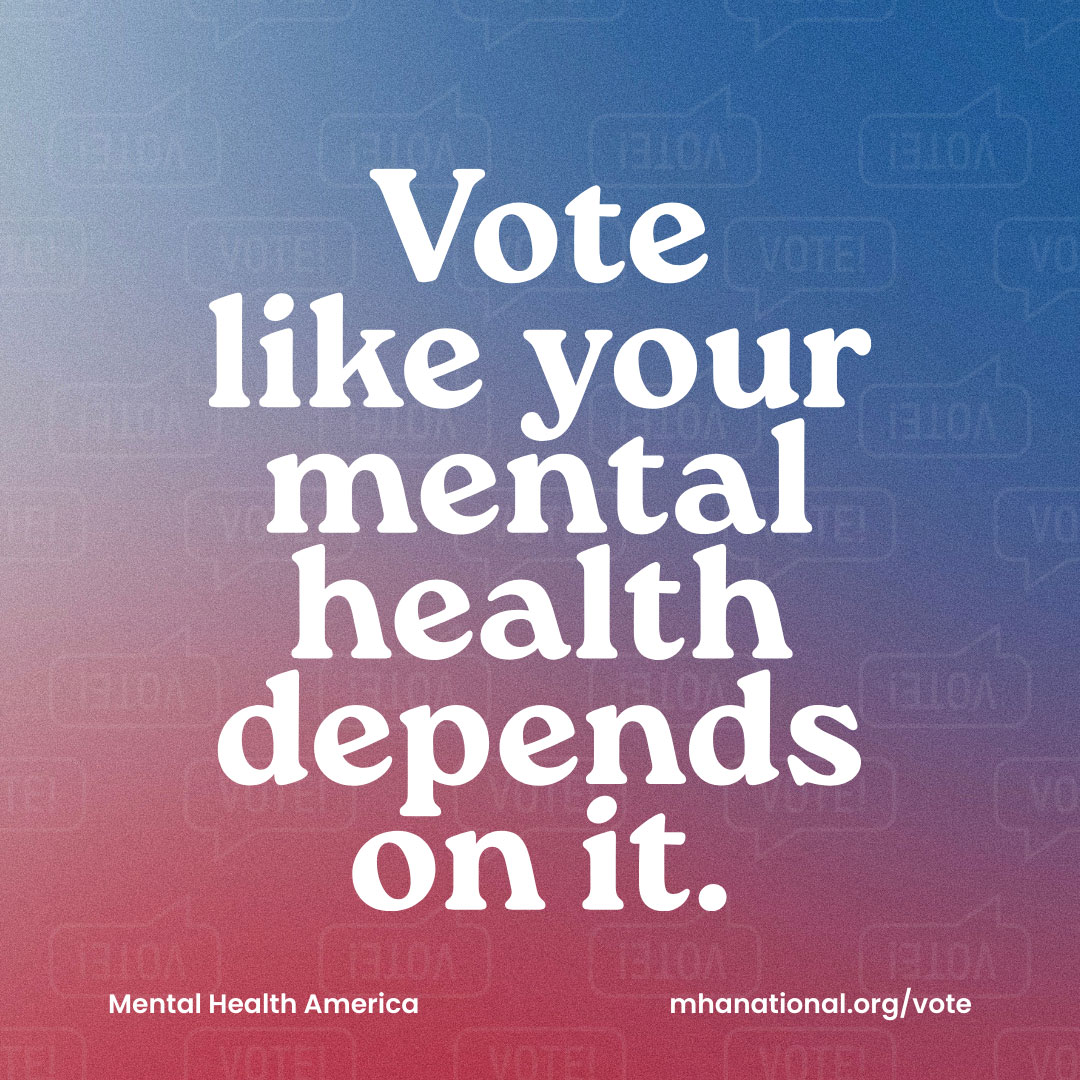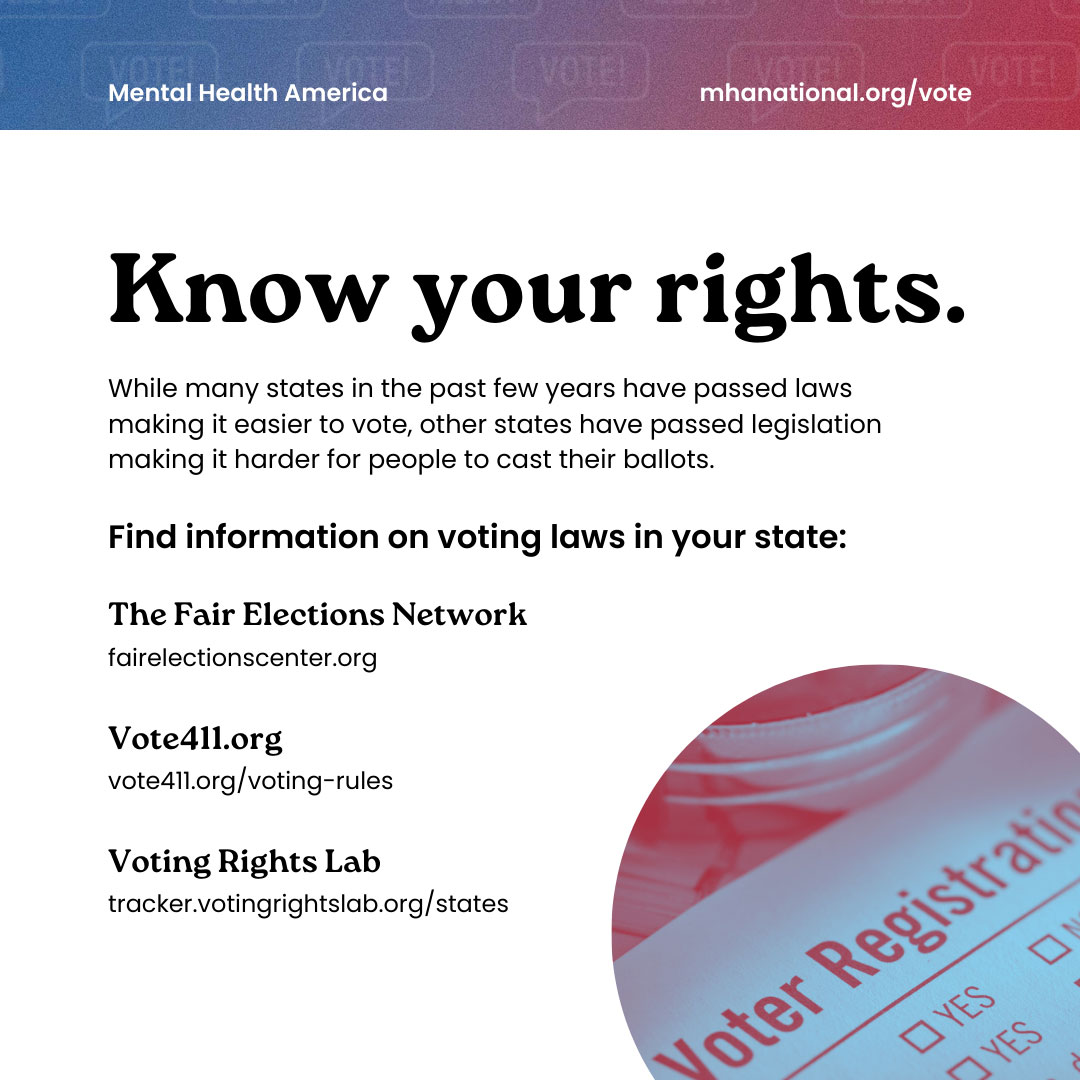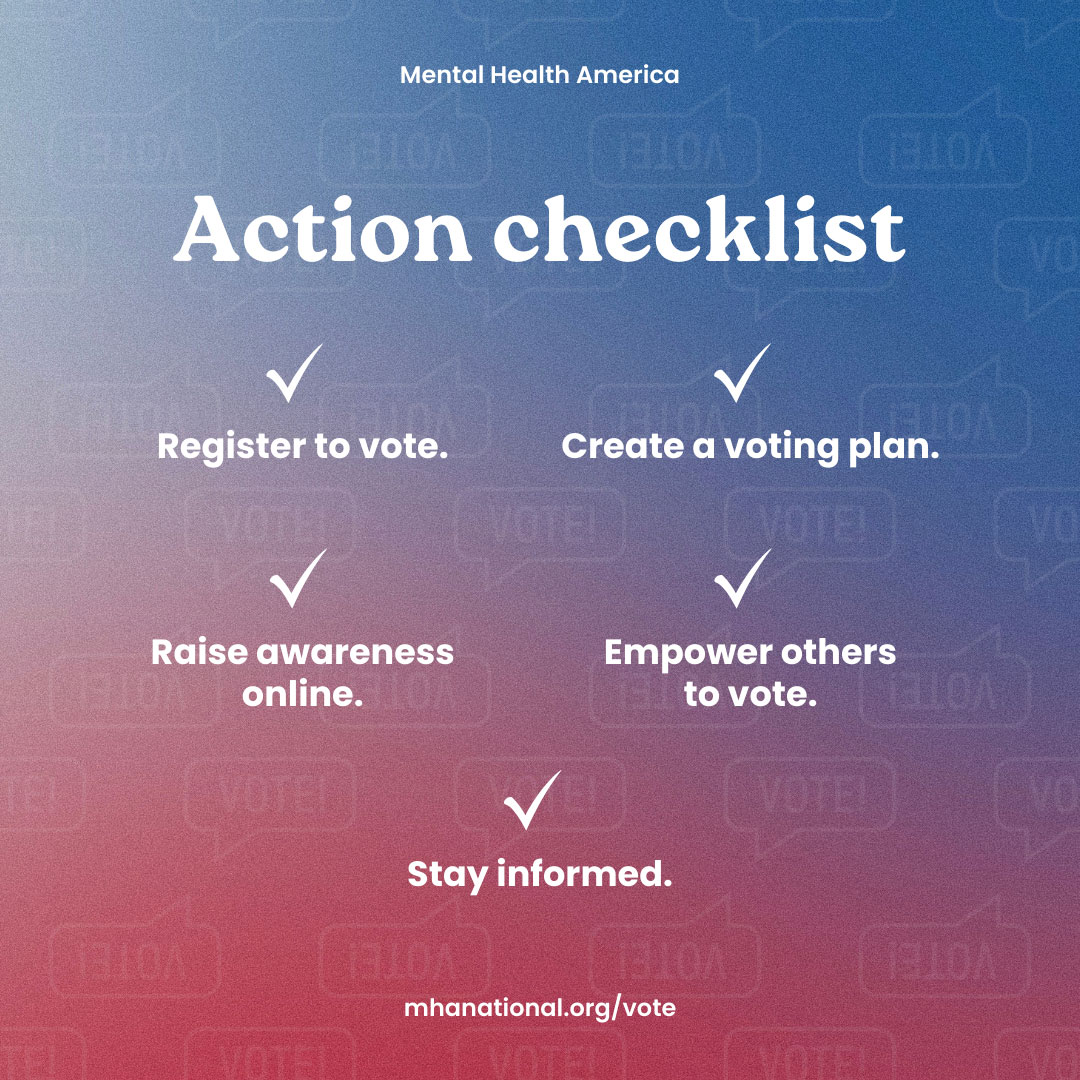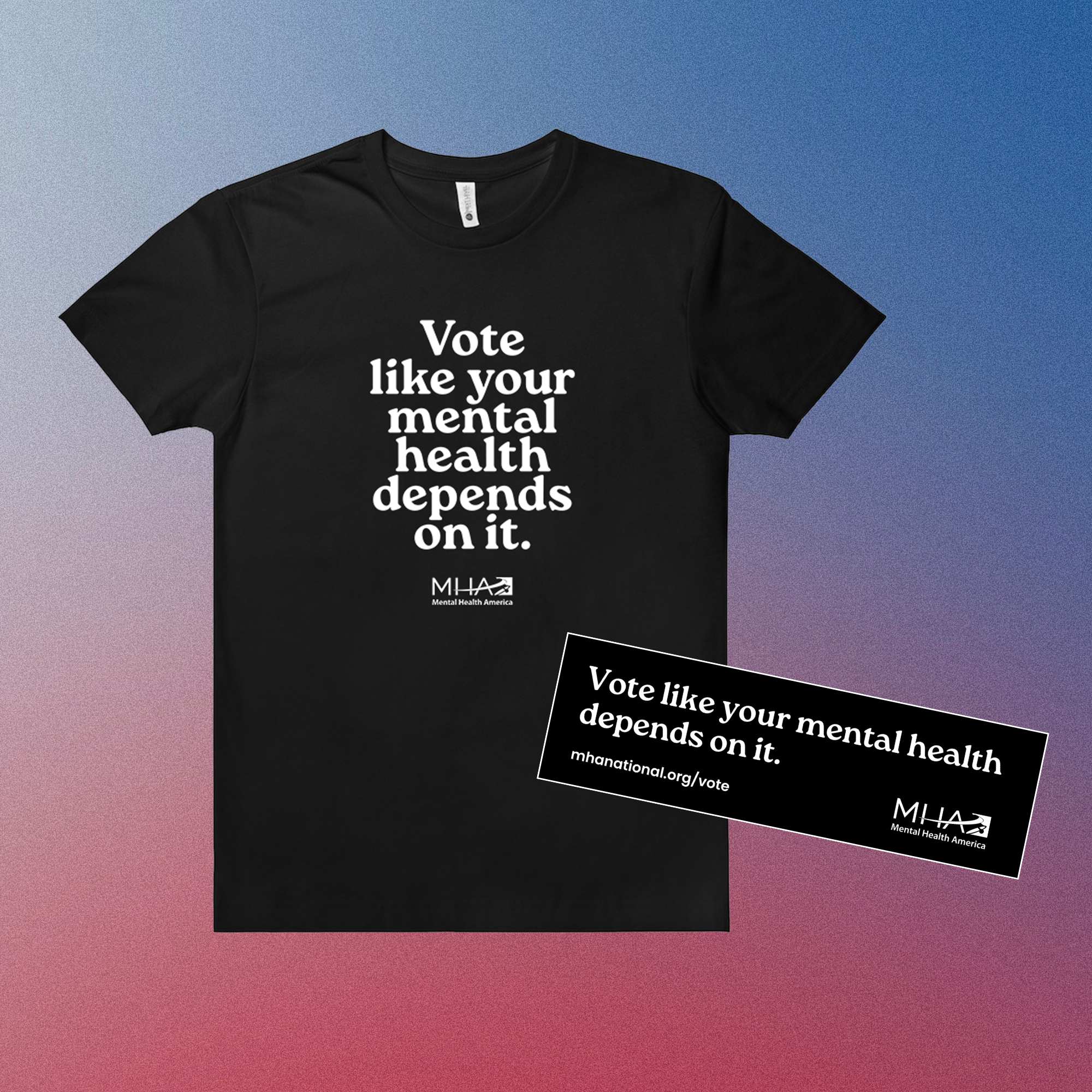2024 Election Mental Health Resources
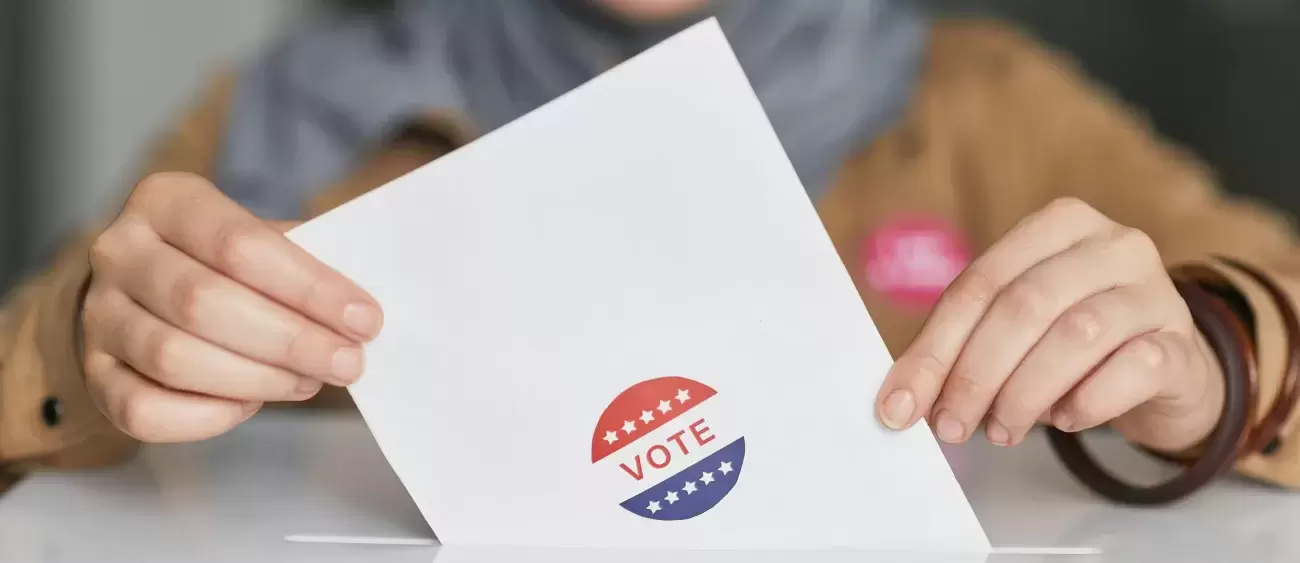
The 2024 election is a pivotal moment in shaping our nation's future, and Mental Health America has tools to help you prioritize your civic duty and your mental well-being.
Vote Like Your Mental Health Depends On It
With mental health care on the ballot—through party platforms and candidate positions—it is more important than ever to be involved in this year’s elections at all levels.
This voter guide will help ensure that people with mental health and substance use conditions feel empowered and able to vote, that candidates at the federal, state, and local levels are considering the concerns of the mental health community, and that all voters are encouraged to ultimately Vote Like Their Mental Health Depends on It.
This guide provides information and tools for:
- Voter registration
- Voting rights
- Making an elections action plan
- Questions to ask candidates
- Writing a letter to the editor
- Understanding major party platforms
- Sharing on social media
- Caring for your mental health
- And more!
Mental Health Voter Guide
Mental Health America
New! Youth Mental Health Voter Guide
Mental Health America x Active Minds
Social Media Shareables
Share these social media posts to encourage your followers to vote like their mental health depends on it.
With mental health care on the ballot in 2024, it's more important than ever for the mental community to be involved in this year's election. MHA's 2024 Voter Guide is here to empower you to vote with mental health in mind. mhanational.org/vote
In light of recent legislation that makes it more difficult for people to vote, it’s crucial that you know your rights before the 2024 election. MHA’s 2024 Voter Guide has all the information you need on voting rights and actions you can take before November. mhanational.org/vote
This November, vote like your mental health depends on it — because it does. Check out MHA’s 2024 Voter Guide for information on voter registration, your rights, and actions you can take before the election. mhanational.org/vote
Youth Election Town Hall
Catch the insights from our recent conversation where youth shared experiences, asked pressing questions, and explored ways to make our voices heard without compromising our mental health. Let’s continue empowering each other to shape the future through informed, meaningful participation in the electoral process.
Take care of you during election year
Media coverage during election season can be overwhelming and triggering. While Mental Health America encourages voting, advocating, and learning about the issues, it is also important that people care for their own well-being – especially amid everything else going on in the world. Consider taking a free, private mental health test to check in with yourself, or use these resources.
Together, let's make 2024 a year of positive change—for our nation and for ourselves.
Shop mental health voter merch from our store
100% of proceeds support Mental Health America


